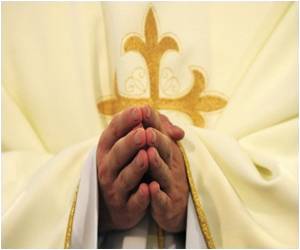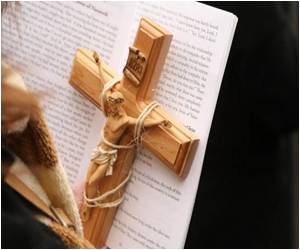Amid a growing tide of conversions to Protestantism, Roman Catholics are scrambling to shore up support among the faithful in Brazil ahead of a visit next year by Pope Benedict XVI.

But census figures highlight decades of decline in the ranks of Catholics here, who in 1970 were almost 92 percent of the population, but by 2000 comprised just 74 percent and today account for a mere 64.6 percent, according to 2010 census data.
Meanwhile, the percentage of Protestant evangelicals has soared by 42.3 million -- a figure equivalent to the entire population of Chile -- increasing in the decade between 2000 and 2010 from 15.4 percent of Brazil's population to 22.2 percent.
Jose Diniz, a professor at Rio's National School of Statistics, predicts the downward trend for Catholicism will continue and that by 2030, Catholics will represent less than 50 percent of the population.
This is not welcome news for Pope Benedict XVI, who is to make his second visit to Brazil since 2007 next July to attend World Youth Day, a Catholic church event expected to draw hundreds of thousands of youths from around the world to Rio.
Last year Silas Malafaia, a 54-year-old television evangelist who openly attacks abortion and gay marriage, launched an online mission to "lure a million souls" to his Victory in Christ Assembly of God church.
Advertisement
According to the church's electronic membership registry, more than 60,000 faithful have joined the preacher's campaign after making a "voluntary donation" of at least $500.
Advertisement
New followers are recruited via the Internet or during mega-events organized by Malafaia. who rents commercial spaces on national television stations and owns a publishing house.
The Assemblies of God, the largest evangelical group with roots in Brazil dating back more than a century, has 50,000 pastors and 100,000 churches, including mega-churches, according to Malafaia.
By contrast, the Catholic church says it has less than 25,000 priests and 11,000 parishes.
"Most evangelicals are former Catholics, but being Catholic does not mean being a practicing Catholic. By contrast, an evangelical lives his faith at work, in school and in the community," Malafaia said.
Evangelicals also are increasing their political muscle.
In Brazil's 594-member Congress, they now form a powerful bloc of 73 deputies who espouse conservative views, including support for "the natural family made of a man and a woman," said lawmaker and pastor Ronaldo Fonseca.
Analysts link the defection of many Catholics to internal migrations of the past few years, in which tens of thousands of Brazilians have flocked from their home regions to the outskirts of major cities for economic reasons.
"They leave Catholic northeastern and southern Brazil and congregate in poor suburbs where the state is absent and where the Catholic church has a very low profile," said Cesar Romero Jacob, a political scientist at Rio's Catholic University and a leading expert in religious trends in Brazil.
"Pentecostal groups," he said, "have occupied this space."
Source-AFP









